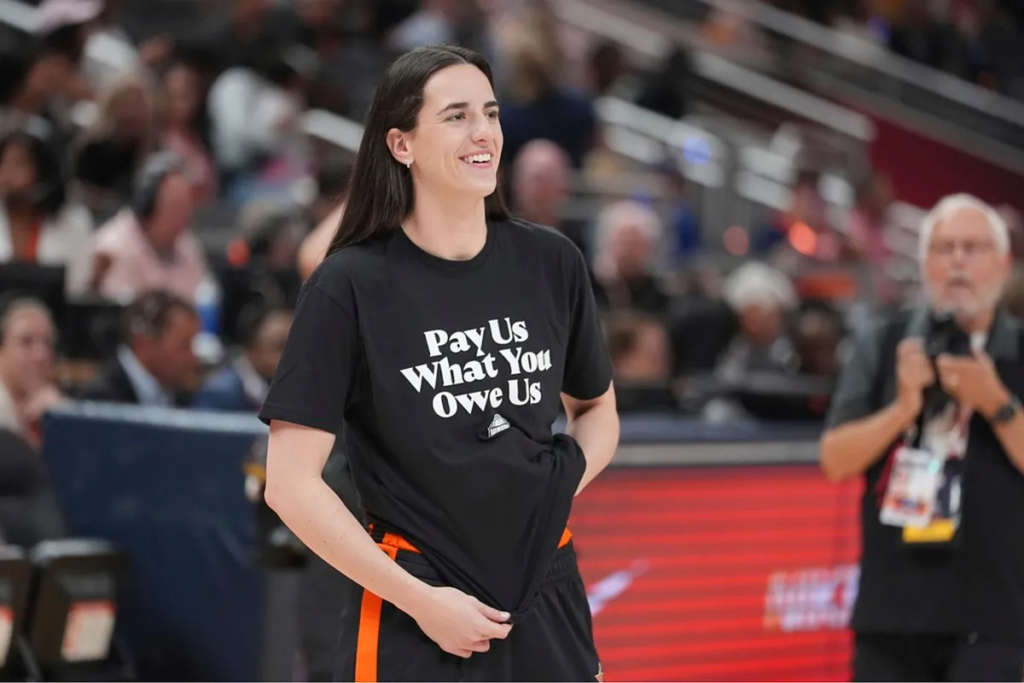The most recent WNBA All-Star Game, held in Indiana on Saturday, July 19, was expected to be a celebration, a fun night showcasing the league’s talent. Instead, it reignited a simmering debate that has hovered over the WNBA for months: players’ calls for increased pay.
During warmups at the event, several players wore shirts emblazoned with the phrase “Pay us what you owe us.” The statement aimed to highlight the stark wage disparity between the NBA and WNBA, a discussion that has fueled countless debates over gender pay gaps in professional sports. But while the message resonated with some, many fans voiced their discontent on social media, criticizing the players’ demands.
One comment, in particular, drew significant attention for bluntly summarizing the issue:
The WNBA loses $50 million every year and has NEVER generated a profit. You deserve $0.00.
A harsh assessment, but one that reflects the current financial reality of the WNBA. The league’s economics remain unstable, complicating the push for higher salaries.
In its 28-year history, the WNBA has yet to turn a profit. Losses have increased in recent seasons. Until 2023, the league’s annual shortfall was around $10 million; by 2024, that figure ballooned to $50 million, even as total revenue reached $200 million.
A league dependent on subsidies
The WNBA has relied heavily on NBA subsidies since its founding in 1997, with the men’s league covering roughly 60% of its operating costs. That financial support remains essential for the women’s league’s survival.
This dependency partly fuels the backlash from some fans when WNBA players highlight salary disparities. Even stars like Caitlin Clark are not immune to criticism.
Social media reactions varied in tone but echoed a similar sentiment, frustration that players seemed to ignore the league’s precarious finances.
“Welfare National Basketball Association,” one user wrote, mocking the league’s reliance on support.
Another added, “Paying them nothing is still too much. They should pay the league for the privilege of participating.”
Others offered more nuanced perspectives:
They don’t deserve $0. DoorDash didn’t make a profit for a very long time, and they paid their employees more than zero dollars.
Not all players agreed to wear the protest shirts during the All-Star Game, signaling differing views even within the locker room.
The league’s upcoming broadcast rights deal, worth $2.2 billion starting in 2026, will inject about $200 million annually. The looming question: will that influx be enough to finally push the WNBA toward profitability?
Now, some people could say that their arguments are valid, even though the WNBA has no resources to increase their salaries, for now. Despite the backlash after the All-Star Game, it seems that for the rest of this season, nothing will change. We will see if the story changes for the next year. For sure, everyone wants to have a healthy league for everyone who is involved in it.
Read the full article here

